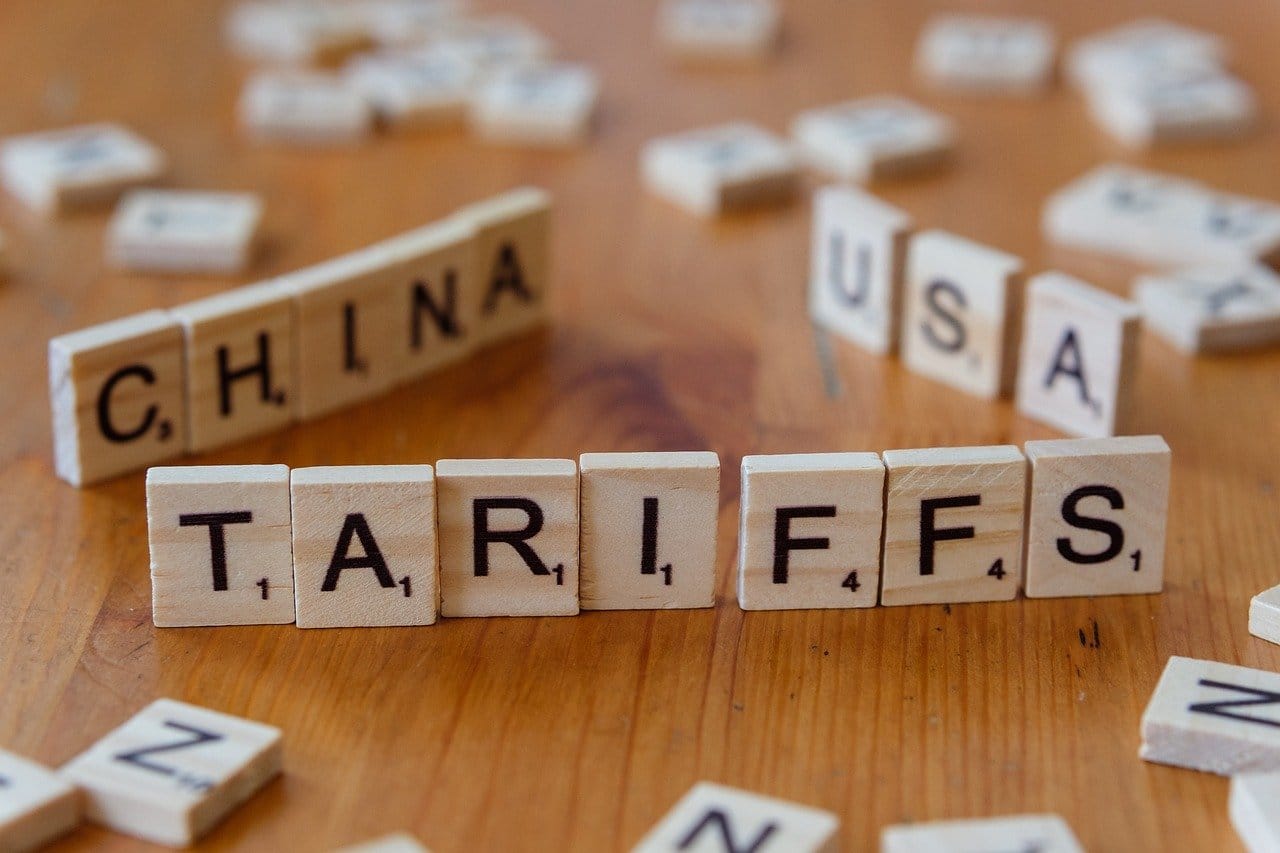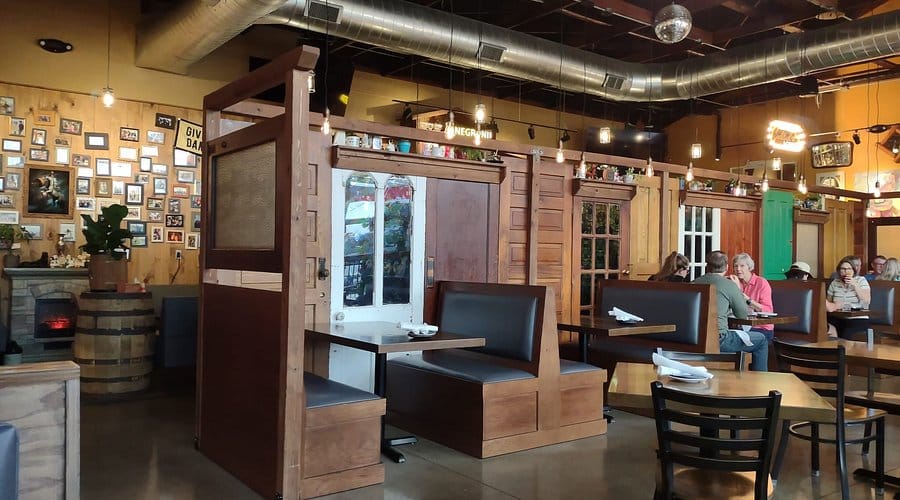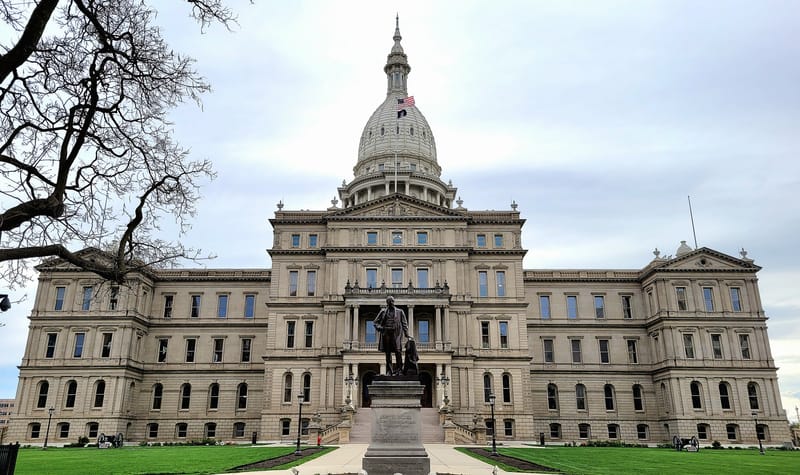Ottawa businesses are feeling the pinch of Trump's tariffs
From the hospitality industry to toys, the Trump tradeware and its associated tariffs are affecting local business owners in a big way.

HOLLAND — From the hospitality industry to toys, the Trump Administration and its associated tariffs are affecting local business owners in a big way.
Ecobuns Baby & Co., a beloved Holland baby boutique and toy store, is closing its physical storefront later this month, citing the escalating U.S.-China trade war and its impact on small businesses. The store, 11975 E. Lakewood Blvd., will shift entirely to e-commerce operations after July 25.
Marissa Berghorst, co-owner with her mother, Vicki Hughes, said the decision came with a "massive amount of tears."
The store has been a community staple for 12.5 years, offering not only products but also serving as a local resource for parents, hosting events like car seat safety classes, "mom's speed dating," and lactation consultant sessions. The store has a large local following, Berghorst said, and many customers have tried to support them throughout the current economic state.
How it started
The current U.S.-China trade situation, initiated in 2018 under President Donald Trump, has seen the U.S. government impose tariffs on hundreds of billions of dollars worth of Chinese imports, citing concerns over unfair trade practices. China has retaliated with its own tariffs.
About 80% of toys sold in the U.S. are manufactured in China, data reflects, meaning a significant portion of Ecobuns' inventory originates there. Even the "worst-case scenario" of a 30% tariff felt "awful," Berghorst said, and the higher rates proved unsustainable for the brick-and-mortar model.
Although there have been periods of negotiation and some temporary reprieves or reductions in tariffs, the overall landscape remains volatile, with tariff rates fluctuating and impacting a wide range of goods.
Most recently, President Trump has reinstated and increased tariffs on various Chinese products, with some rates reaching well over 100% on certain imports, though some are currently under a temporary pause. This ongoing uncertainty has left many U.S. businesses grappling with increased costs and disrupted supply chains.
A number of media outlets are tracking the tariff rates and news associated with its flux. The rate rollercoaster has hit different industries in different ways.

Closing up shop
For Ecobuns, the trade war's impact became acutely felt this spring.
"Our lease was up at the end of the month, and as those conversations started, the first wave of tariffs was announced," Berghorst said. "Businesses and vendors were chatting about the worst-case scenario. It would be 30%. We thought there was no way it would get that high."
However, Berghorst said some tariffs quickly climbed, reaching as high as 145% on certain products before a temporary pause until mid-August. While some Chinese manufacturers are seeing a 30% tariff depending on the product, the constant changes have made planning nearly impossible.
"It changes so often," she said. "Basically, we had a great fall and winter, and we were so excited, but that completely turned around. From February until now, we get weekly, sometimes daily, emails that say inventory is late or isn't coming."
While sales are currently strong, Berghorst anticipates prices will be significantly higher for consumers come fall, a concern that weighed heavily on their decision not to sign a new three-year lease.
Ecobuns has long prioritized "Made in America" products, offering items like sunscreen from Grand Rapids and laundry detergent from Detroit. Berghorst urged consumers to support local vendors and shop early for holiday needs.
"If you wait to shop in November, the prices are going to be higher," she warned, noting that many small businesses pre-ordered heavily earlier this year to get ahead of tariffs, but inventory will eventually run out. She's already seen items that were $19.99 now selling for $24.99.
The move to e-commerce will allow Ecobuns to better manage inventory and adapt to the unpredictable tariff environment. While it won't replicate the physical store's community hub feel, Berghorst is committed to staying connected. They plan to offer online order pickup at local businesses like Stave & Barrel and Estate Sale Warehouse.
"We want to stay open," Berghorst said, acknowledging the emotional toll the decision has taken. She recounted how two children who have grown up with the store — even acting as little helpers with name tags Marissa created for them — helped take down their pictures from a wall of customer photos.
"There have been a lot of tears over this decision," she said, noting some original toddler customers are now heading to college. "It's been an emotional process."
Berghorst remains hopeful for the future.
"Maybe after the dust settles, we may be able to open in another storefront," she said. "We love this community and have been such a part of it."
Ecobuns can be found online at ecobuns.com and on social media channels.

Food industry hit hard, too
Beyond retail is the local hospital industry is also feeling the pinch.
The Unicorn Tavern, 415 S. Beechtree St., in Grand Haven, is a Belgium-themed gastropub that, as one can imagine, relies on international products to support its menu theme.
To serve up the rich, specific flavors of Belgian food and drinks, products that are currently heavily taxed are still a necessity.
Owners, Garry and Kristal Boyd, however, are committed to not passing that additional cost along to their customers.
“My goal is to be the last person in the tariff chain to be affected. We have not yet had to pass on those costs and continue to absorb as much as possible. It’s just the price of doing business right now,” Garry Boyd said. “You can’t keep passing prices on or you’ll break the industry. The industry is already struggling.”
Among some of the items taxed that the Boyds use on their menus, in their kitchens and behind the bar include coffee, rootbeer, cleaning products, bar glass cleaning and sanitizing products, Danish blue cheese, Havarti cheese, sandwich bags, plantains and Italian arborio rice.
“The tariffs are everywhere,” he said. “This is the latest hurdle. You have to be able to pivot if you want to be successful.”
Support Our Work
Ottawa News Network is a nonprofit news service dedicated to providing the residents of Ottawa County with trustworthy, community-driven news. ONN treats journalism as a public good — something that enriches lives and empowers Ottawa County’s 300,000-plus residents to stay engaged, make informed decisions, and strengthen local democracy. Please consider giving today.
The establishment is located on the up-and-coming eastside of Grand Haven — something he said was intentional.
“I wanted to develop the eastside of my community,” he said. “I am thankful for every day that we’ve started. I just want to remain positive.”
Boyd previously was a co-founder of BarFly Ventures, which owns restaurants such as Stella's Lounge, HopCat, and Grand Rapids Brewing Company. He was also the general manager of Kirby House in Grand Haven for nearly a decade before starting his own restaurants.
“This situation is unexpected, but it’s not necessarily the end of the world, but it sure seems real — the tariff effect,” he said. “It’s frustrating.”




